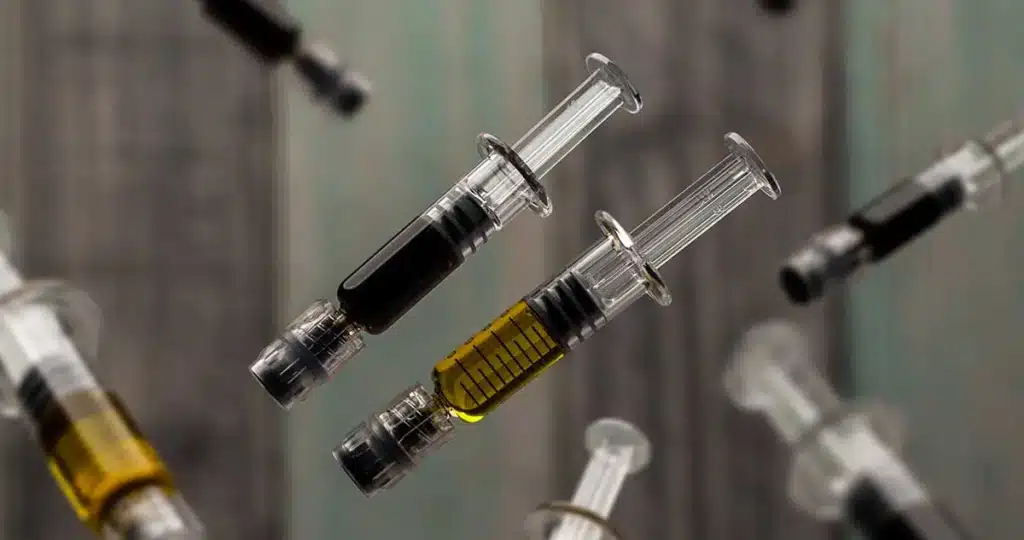Two popular cannabis extracts known for high THC (tetrahydrocannabinol) content are the distillate and RSO (Rick Simpson Oil). The RSO vs distillate comparison is a common topic among enthusiasts, and that’s the topic of this article.
Here, we’ll explore the difference between RSO and distillate and their advantages and potential applications. We will also look at their production methods, chemical profiles, and consumption methods to comprehensively understand these two distinct cannabis extracts.
Sections
ToggleWhat Exactly is Distillate?
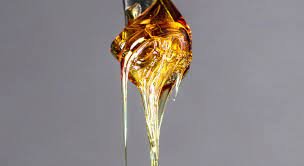
Distillate is a highly refined cannabis extract typically containing a single cannabinoid. The THC or CBD distillates are the most widely available, providing the cannabinoids in their purest form. The extraction generally starts with ethanol cannabis extraction, which removes most of the plant matter, terpenes and other compounds. This is followed by the distillation process, which utilizes the varying boiling points of compounds to refine the cannabinoids further. The resulting distillate is a clear, odorless, and flavorless oil with up to 99% pure cannabinoid content.
Difference Between THC and CBD Distillates

- THC (tetrahydrocannabinol) and CBD(cannabidiol) are both cannabinoids but with different effects on the body.
- THC distillate is known for its potent psychoactive effects, while CBD distillate offers potential therapeutic benefits without any intoxication.
- Most of the applications of THC distillate are in recreational products, while CBD distillate is more common in wellness applications.
- Both types of distillates can be further enhanced by adding terpenes for specific flavor profiles and effects.
What Exactly is RSO?
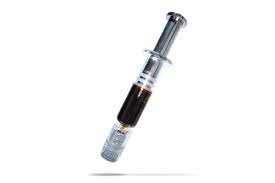
RSO, named after its creator, Rick Simpson, is a full-spectrum cannabis extract containing a wide range of cannabinoids, terpenes, and other plant compounds. Unlike distillate, RSO retains the cannabis plant’s natural profile. Its “entourage effect” is one of the significant RSO vs distillate differences, highlighting the different approaches to cannabis extraction. RSO can have a high concentration of THC, often around 60-90%. Compared to distillate, which is frequently clear and odorless, Rick Simpson Oil is usually dark brown or black with a sticky, syrup-like consistency.
The full-spectrum entourage effect of RSO is due to multiple cannabis compounds working together synergistically. Also, RSO is popular for its purported medical benefits, is typically consumed orally or applied topically, and is not meant for smoking or vaping.
How is RSO made?
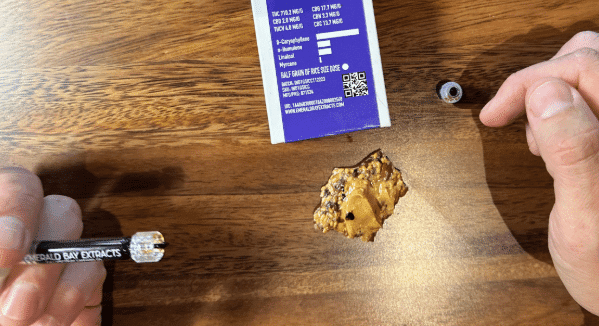
RSO is typically produced using a solvent-based extraction method. The process starts by soaking the cannabis buds in a solvent, usually high-proof alcohol or pure light naphtha. This filters out the plant matter and dissolves THC, terpenes, and other cannabinoids. Then, the solvent is evaporated, leaving behind a thick, dark oil known as RSO.
The resulting product is a potent, full-spectrum cannabis extract that contains a high concentration of THC, along with other cannabinoids, terpenes, and plant compounds.
RSO vs. Distillate
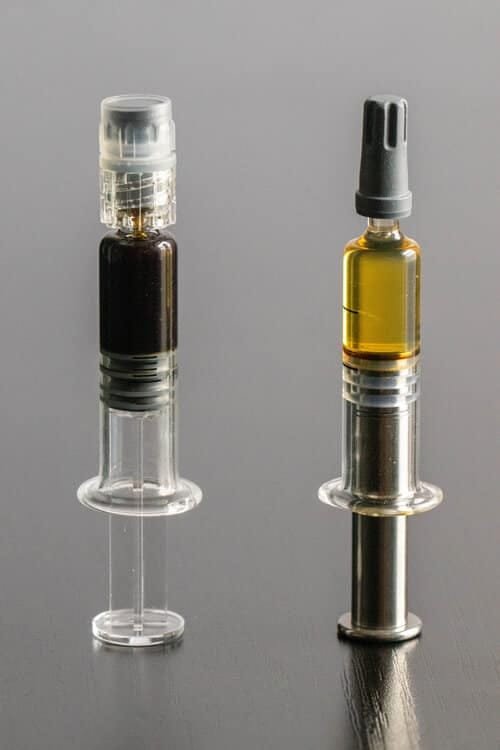
Feature | RSO | Distillate |
Profile | Full-spectrum cannabinoid extract, contains multiple cannabinoids and terpenes | Isolated cannabinoid (usually THC or CBD), terpenes are entirely removed |
Cost | Generally, less expensive as production process is simpler with less steps involved | More expensive due to complex multi-step refinement process |
Taste | Strong, earthy cannabis flavor due to original terpene profile | Flavorless unless terpenes are added |
Effects | Potentially more varied due to entourage effect | More predictable, focused effects of single cannabinoid |
Consumption Methods | Edibles for oral ingestion and topical application | Versatile: vaping, dabbing, edibles, topicals |
Marijuana Methods of Consumption

The marijuana consumption method depends on which form you choose – RSO or distillate. There are several ways to consume these extracts:
- Oral ingestion: RSO and distillate can be consumed directly or mixed into food and drinks. Again, the debate on the RSO vs. distillate for edibles is about whether you want a more substantial psychoactive effect or flavor. Distillate in edibles can produce an intense “high,” while RSO will give a more balanced entourage effect.
- Vaping: Distillate is commonly used in vape cartridges, while RSO is generally not suitable for vaping due to its thickness and plant material content.
- Dabbing: Distillate is volatile enough to be dabbed, but RSO is due to its heterogeneous compound profile, which is typically not recommended for this method.
- Topical application: Both extracts can be used in topical preparations. Distillates in topical form for skin inflammatory disease treatment are one area of interest, while RSO is popular for addressing localized pain, skin conditions, or inflammation.
You have to choose between the two depending on the degree of psychoactive effect or flavor you want. However, when comparing RSO and distillate for edibles, RSO is a clear winner because of its well-rounded compound profile.
How Would You Prefer to Consume?
By now, you have a much better understanding of the RSO vs. distillate topic; what remains is to discuss the more suitable extract for your consumption.
The choice depends on your preferred consumption method and desired effects:
- If you enjoy smoking cannabis, vaping or dabbing is a better option, and distillate is the preferred choice due to its purity and consistency.
- RSO might be more suitable if you seek potential therapeutic benefits from a full-spectrum product.
- For infusing in edibles, both can be used, but RSO may impart a stronger cannabis flavor.
Consider your THC tolerance level as well. Distillate typically has a higher THC percentage, and RSO produces a more pronounced entourage effect despite a lower THC content.
Conclusion
RSO and distillate differ primarily in their production methods and potential effects. Distillate is a pure, potent, and versatile cannabis extract, often a flavorless and odorless product that can be used in various applications. On the other hand, RSO provides a full-spectrum experience due to the presence of terpenes and other cannabinoids. It potentially offers a broader range of benefits due to the entourage effect.

